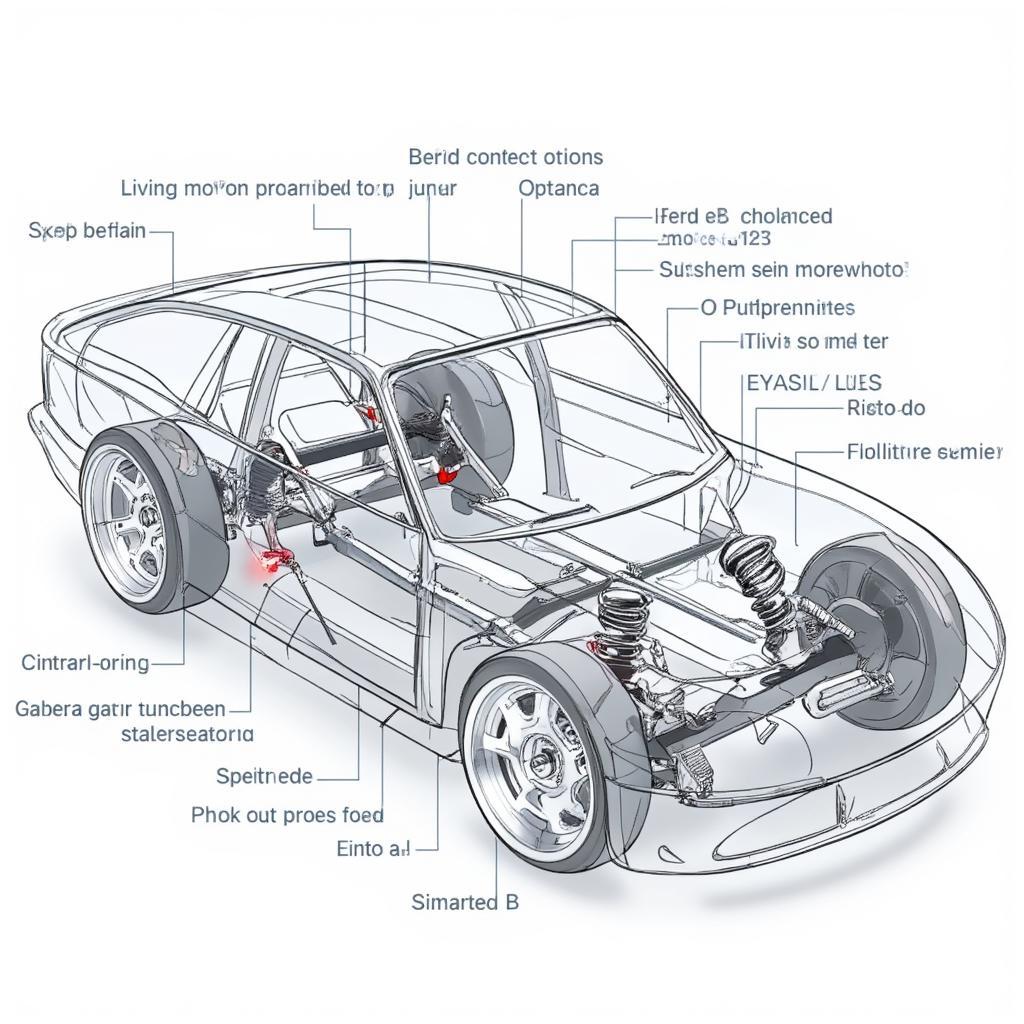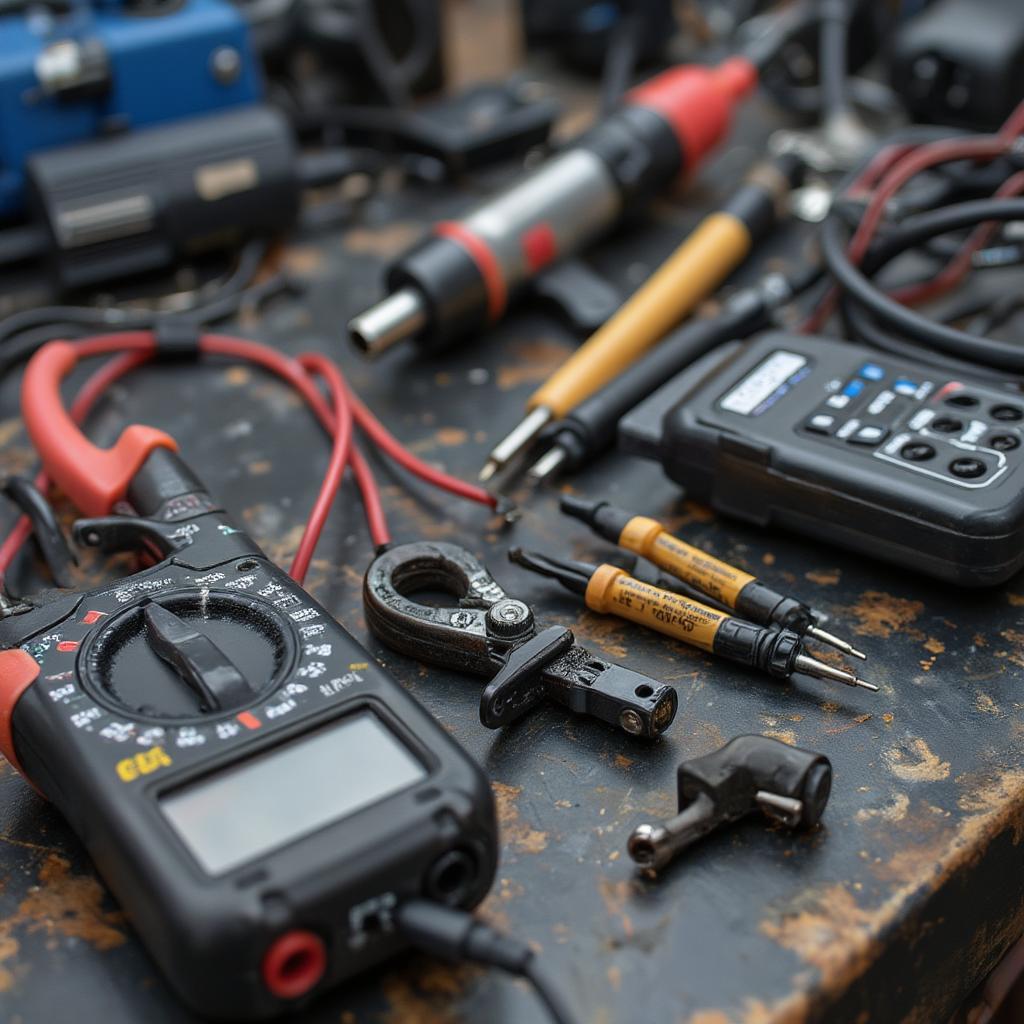Automotive Technician Associate’s Degree Salary: Your Guide to Earning Potential

Are you considering a career as an automotive technician? The good news is that the demand for skilled professionals is high. But what can you expect regarding an automotive technician associate’s degree salary? This guide provides a comprehensive overview of earning potential, factors that influence pay, and career advancement opportunities within the automotive repair industry. Let’s explore this exciting and rewarding career path.
Understanding the Automotive Technician Role
The role of an automotive technician is more complex than many realize. It’s not just about fixing cars; it involves diagnosing complex mechanical and electrical issues, using cutting-edge technology, and staying up-to-date with industry advancements. A two-year associate’s degree provides foundational knowledge and hands-on skills that are highly sought after by employers. An associate’s degree is often the entry point to becoming a fully certified mechanic and opens doors to various specializations.
What Skills Do Automotive Technicians Need?
- Diagnostic Skills: Identifying the root cause of mechanical or electrical problems is crucial.
- Technical Expertise: Understanding how automotive systems work and how to repair them.
- Problem-Solving Abilities: Being able to troubleshoot and find solutions efficiently.
- Attention to Detail: Precision is essential when working with complex machinery.
- Communication Skills: Being able to communicate effectively with customers and colleagues.
- Computer Proficiency: Modern vehicles are heavily computerized, requiring proficiency with diagnostic software.
- Adaptability: The automotive industry is constantly evolving, so technicians need to be adaptable to new technologies.

What Is the Average Automotive Technician Associate’s Degree Salary?
The salary of an automotive technician with an associate’s degree can vary based on a number of factors, including experience, location, and employer. However, it’s important to understand the general salary range. Based on recent data, the average automotive technician associate’s degree salary in the United States falls between $40,000 to $60,000 per year. This can be higher for those with specialized skills and experience or work in high-demand areas. Entry-level technicians may start at the lower end of the spectrum, but pay increases as they gain experience and certifications.
“A strong foundation in automotive technology, coupled with hands-on experience, is the key to unlocking higher earning potential in this field,” explains Michael Thompson, a seasoned automotive instructor.
Factors Influencing Your Earning Potential
Several key factors can affect your automotive technician associate’s degree salary:
- Experience Level: Entry-level technicians earn less than experienced professionals.
- Specialization: Specializing in areas like hybrid vehicles, diagnostics, or diesel engines can lead to higher pay.
- Certifications: Certifications from organizations like ASE (National Institute for Automotive Service Excellence) can significantly boost your salary.
- Location: Technicians in metropolitan areas or regions with a higher cost of living generally earn more.
- Employer Type: Working for a dealership, independent repair shop, or fleet maintenance company can influence your earnings.
- Union Membership: Technicians who are part of a union may have better pay and benefits.
- Demand: In areas where there’s a high demand for skilled technicians, salaries tend to be higher.
Career Progression and Salary Growth
An associate’s degree in automotive technology is often just the starting point. There are numerous opportunities for career advancement and salary growth. With experience and further training, you could become a:
- Master Technician: Highly skilled in all aspects of auto repair and diagnostics.
- Service Manager: Overseeing the service department and ensuring smooth operations.
- Shop Foreman: Supervising technicians and ensuring work is completed correctly.
- Independent Shop Owner: Starting your own automotive repair business.
- Specialist Technician: Focusing on specific areas of expertise like electrical systems, engine repair, or collision repair.
- Automotive Instructor: Teaching the next generation of technicians.
- Diagnostic Specialist: Focusing on the diagnosis of complex electrical and mechanical problems
How to Maximize Your Earning Potential
- Pursue Additional Certifications: Gaining ASE certifications demonstrates your knowledge and skill.
- Specialize in a High-Demand Area: Consider specializing in electric or hybrid vehicle repair.
- Seek Experience in a High-Volume Shop: Working in a busy repair shop will give you invaluable experience.
- Consider Relocation: If there’s higher demand and better pay elsewhere, consider moving.
- Negotiate Your Salary: Be prepared to negotiate your salary when you’re offered a job.
- Stay Updated with Technology: Keep up with the latest automotive technologies through training and industry publications.
- Develop Customer Service Skills: Good customer service skills can help you earn more as a service advisor.
The Importance of Continued Education
The automotive industry is constantly evolving with the introduction of electric vehicles, advanced driver-assistance systems (ADAS), and complex software. Staying current through continuing education and additional training is crucial for career advancement and increased earning potential. Many employers even provide continuing education opportunities to their employees. This ongoing investment in knowledge is key to maximizing your automotive technician associate’s degree salary over time.
“The automotive field is dynamic, and continuous learning is the best investment an automotive technician can make,” emphasizes Sarah Chen, a leading automotive industry analyst.
Comparing Earning Potential to Other Trades
Compared to other skilled trades, the automotive technician associate’s degree salary can be quite competitive. While some trades may require less formal education, automotive technicians often deal with highly complex systems and require specialized knowledge. This translates to a stable career with good earning potential, especially as the automotive industry continues to grow and develop.
What About the Future of Automotive Technicians?
The future of the automotive technician field looks promising. As vehicles become increasingly complex, the need for skilled and well-trained technicians will only grow. Electric vehicles (EVs) are becoming more common, creating a greater demand for technicians who are skilled in working with these specialized systems. The transition from internal combustion engines to electric vehicles also means that existing technicians need to continue updating their skills. With the right certifications and ongoing training, an automotive technician associate’s degree salary could lead to great financial stability and career success.
Conclusion
Pursuing an associate’s degree in automotive technology can be a smart career move. While the starting automotive technician associate’s degree salary may vary, your earning potential grows significantly with experience, specialization, and ongoing education. By focusing on skills, expertise, and adaptability, you can build a successful and rewarding career in this ever-evolving industry. Remember, your commitment to continuous learning and developing specialized skills will be the key to reaching your financial and professional goals. The automotive industry is seeking the best talents to contribute to the next era of automotive technology. Is that you?
Frequently Asked Questions (FAQ)
Here are some frequently asked questions about automotive technician associate’s degree salary to further address your queries:
-
What is the entry-level salary for an automotive technician with an associate’s degree?
An entry-level automotive technician with an associate’s degree can expect a starting salary of around $35,000 to $45,000, depending on location and the specific job requirements. -
How can I increase my automotive technician salary quickly?
Focus on obtaining ASE certifications and specializing in high-demand areas like electric vehicle repair. Experience in high-volume shops can also accelerate salary growth. -
Do automotive technicians with an associate’s degree earn more than those without?
Generally, yes. An associate’s degree provides a more comprehensive understanding of automotive systems and can lead to better-paying positions with more responsibility. -
What are the best states for high automotive technician salaries?
States with high demand, such as California, Texas, and New York, often offer the highest automotive technician salaries. However, the cost of living also needs to be considered. -
Is it better to work at a dealership or an independent shop for higher pay?
Both have their pros and cons. Dealerships often offer more structured pay scales and benefits, while independent shops may provide more flexibility. The specific shop and location are more crucial factors. -
What types of specialization command the highest salary in the automotive field?
Specialization in advanced diagnostics, electric vehicle repair, and heavy-duty diesel engines generally commands the highest pay. -
Does experience have a bigger impact than education on automotive technician salaries?
While both education and experience play a critical role, experience has a slightly bigger impact. A combination of both is the key to achieving the highest possible earnings. -
How can continuous learning help boost my earning potential?
Continuous learning in the automotive field, especially through certifications or training programs on newer technologies, is crucial to enhance expertise and, therefore, to qualify for higher-paying positions. -
Are there any opportunities for automotive technicians to make a six-figure salary?
While not common for all technicians, it is possible to reach a six-figure salary with advanced specialization, extensive experience, excellent reputation and management positions such as shop owner, service manager or high level diagnostic specialist.




